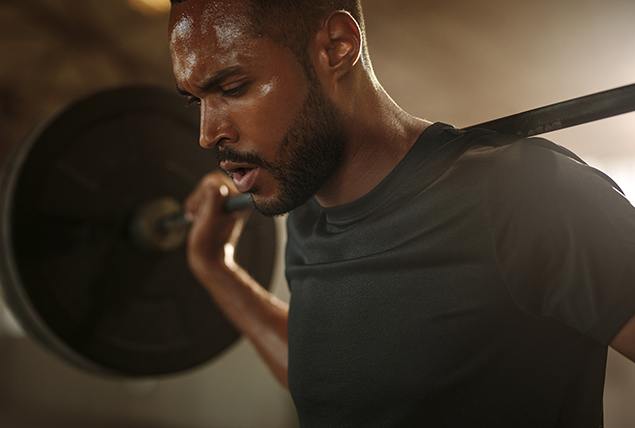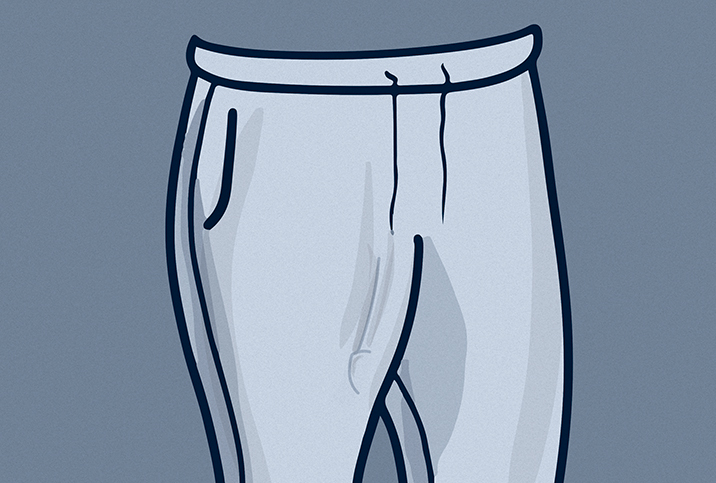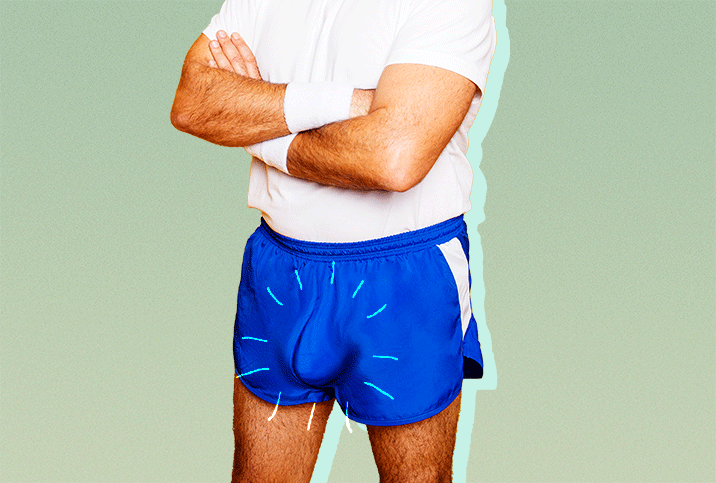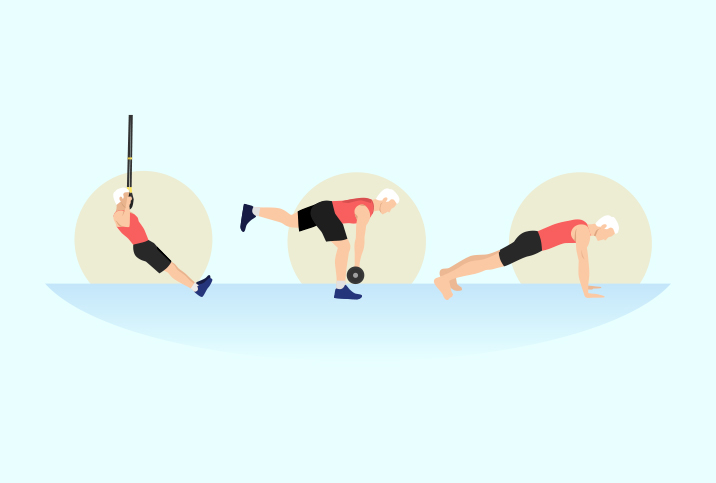Lifting Weights As a Form of Exercise May Help Erectile Dysfunction

The popularity of weight lifting has been going strong for decades with men. While the aesthetically pleasing results—look good, feel good—might be the driving force behind the phenomenon, it can be the cause of some pleasant benefits for men's health and sex lives.
Weight training as a form of exercise improves muscle strength and endurance. The intensity of the exercise depends on personal experience and goals, according to Denise Asafu-Adjei, M.D., an assistant professor of urology and the medical director of male reproductive medicine at Loyola University Chicago Stritch School of Medicine.
"Different forms of strength training include using free weights, weight machines, resistance bands or your own body weight," said Justin Houman, M.D., a reproductive urologist and men's health specialist at Tower Urology in Los Angeles and the medical director for Bastion Health, an app-based telehealth platform for men.
Bodybuilding, power lifting, circuit training, isometric weight training and high-volume training are examples of strength training exercises, Houman added.
The connection between erectile dysfunction and exercise
The leading causes of erectile dysfunction (ED) are arterial dysfunction and cardiovascular disease, according to a 2018 systematic review of intervention studies on how physical activity can improve erectile function.
The studies, conducted between 2006 and 2016, combined various types of workouts, including resistance training and aerobic exercise.
The review described that cardiovascular risk factors such as obesity, physical inactivity, hypertension and metabolic syndrome are linked to ED, and physical activity is evidently an effective solution against erectile problems.
In one of the 10 eligible studies included, researchers found a 15 percent improvement in erectile function after the intervention group completed 135 minutes of aerobic exercise a week for six months, in addition to performing resistance training twice a week.
A good circulatory system is essential to a firmer erection. Damage to the tissues in the penis, such as the endothelium or penile smooth muscle, can cause blood-flow issues that result in a weak erection or no erection at all.
Factors that can be responsible for this damage, according to the International Society for Sexual Medicine (ISSM), include:
- Smoking
- High blood pressure
- Uncontrolled blood sugar levels
- High cholesterol
- Elevated triglyceride levels
"Exercise does more than improve penile blood flow, however," the ISSM states. "Staying fit keeps a man's weight under control, may increase his testosterone levels and boosts his confidence. It can also reduce depression and anxiety. These factors can affect erections as well as other aspects of sexual health."
How weight lifting can help with erectile dysfunction
Optimal testosterone levels are an essential factor in good erectile function, Houman explained.
"That is why weight training, specifically, high-volume resistance training, is good for erectile and sexual performance. These types of exercises naturally boost your testosterone levels, and in doing so, improve not just your erectile function but your libido and sex drive," he said. "In addition, weight training can improve your cardiac function, which helps open many of those small blood vessels that provide blood for strong erectile function."
As for testosterone levels, studies have found the impact of resistance training is measurable, but how long the levels stay elevated is variable. Factors such as age, body weight, exercise type and others affect any outcomes.
If strength training is intense enough, it can increase heart rate and, essentially, become a cardio workout, Asafu-Adjei noted.
"Exercises that increase your heart rate are important for erectile function because it dilates the blood vessels and permits more blood flow to the penis," she said.
Can too much exercise cause issues?
Houman explained that overdoing training not only causes injuries but may also result in lower testosterone levels.
"By putting your body through too much strenuous exercise, this can lead to lower testosterone levels and, therefore, less-than-optimized sexual and erectile function," he explained. "Secondly, overtraining can cause injuries by not allowing your body to heal, as well as leading to significant injuries."
Houman pointed to the need for balance in a strength-training program.
"If you are working out frequently, you need to keep your intensity a bit lower. If you train less frequently, you can increase your intensity with less concern," he said.
According to Houman, you might be working out too much if you notice any of these signs:
- Decreases in strength, power and endurance
- Decreased coordination
- Increased fatigue
- Trouble sleeping
- Irritability, depression and apathy
- Increased muscle soreness, joint aches and pains
- Frequent colds
Asafu-Adjei suggested starting slow and progressively working up to a more challenging routine that incorporates cardio, too. Working with a professional can also help you avoid injuries.
Is weight lifting alone enough to help erectile dysfunction?
Both Asafu-Adjei and Houman agreed that strength training alone does not suffice, since a well-balanced exercise routine incorporates a combination of strength training, cardio workouts and stretching.
The aforementioned 2018 systematic review on physical activity as an ED intervention concluded that the recommended level of physical activity is 40 minutes of cardio four times a week, varying from moderate to vigorous intensity. This weekly training of 160 minutes for six months may help improve erectile function in men with obesity, hypertension, physical inactivity, metabolic syndrome or cardiovascular diseases.
If lifestyle changes such as strength training improve your overall health but erectile dysfunction persists, a wearable device free of the side effects of medication may help restore sexual function. Eddie® is an FDA-registered Class II medical device designed to treat erectile dysfunction and improve male sexual performance by leaving the arteries unencumbered so blood can flow in, but impinging the veins so blood can't flow out. With Eddie, you don't need to wait for a pill to kick in, use an awkward pump or subject yourself to painful injections.


















